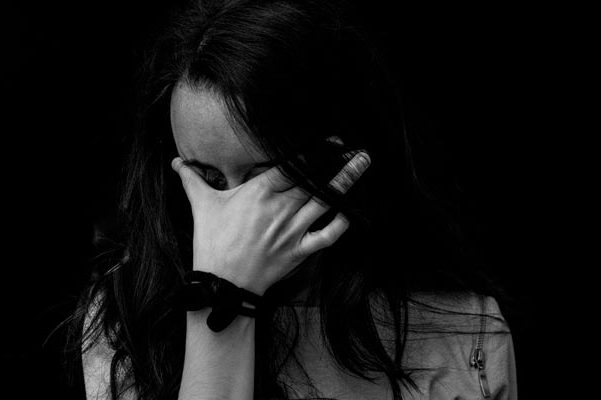An opinion editorial by Carolina Villadiego Burbano, ICJ Latin America Legal and Policy Adviser, and Carlos Lusverti, ICJ consultant.
Around the world, women’s human rights have been severely and adversely affected during the COVID-19 pandemic, and Venezuela is no exception to this trend.
The more general ongoing human rights crisis that Venezuela has faced since 2014, which has had a disproportionate impact on women and girls, and the COVID-19 pandemic and the sometimes ill-conceived government measures to tackle the pandemic have combined to aggravate the situation of women’s human rights.
This was recently well expressed in a 2020 October Resolution on Venezuela by the UN Human Rights Council. It is against this backdrop that we discuss the health risks and the gender-based violence that women are facing during the pandemic in Venezuela with the aim to provide some recommendation for authorities.
Health risks for women
According to the Economic Commission for Latin America and the Caribbean (ECLAC), women in Latin America are “particularly affected by the pressure on health systems because they account for 72.8% of people employed in the sector in the region”.
The Venezuelan healthcare system was in a critical state before the COVID-19 pandemic engulfed the country, and the pandemic has aggravated the situation. For many years, several institutions and organizations have been expressing about the dire state of the health system in the country.
Since the pandemic struck, the Inter-American Commission of Human Rights (IACHR) and Human Rights Watch have called on the need to protect Venezuelans’ rights to health; the OHCHR has provided similar statements.
During the pandemic, the already limited health services have been primarily focused on responding to COVID-19. This has resulted in a diminished access to non-COVID-19 related health services, including those needed for sexual and reproductive care and for pregnant women.
A group of 91 Civil society organizations and additional individuals have expressed concerns about cases of pregnant women suspected of COVID-19 who have been denied timely care and the suspension of pre and postnatal care services in maternal health centers.
They stressed the need for the authorities to act to guarantee women’s rights, including access to sexual and reproductive care for women and girls.
Also, women in disproportionate numbers are responsible for dependents or people in need of care within their homes, and this has exposed them to additional risks during the pandemic.
The Asociación Venezolana de Educación Sexual Alternativa (AVESA), a local NGO, documented how the lockdown/quarantine measures increased home care tasks and deepened the economic problems women were already experiencing.
It is clear the Venezuelan authorities must act more effectively to protect women’s rights during the pandemic in line with their legal obligations under international human rights law.
Venezuela is party to several human rights treaties that provide for this legal obligation, including the Inter-American Convention for the Prevention, Punishment and Eradication of Violence against Women (“Convention of Belém do Pará”) and the UN Convention on the Elimination of all Forms of Discrimination against Women (“CEDAW”).
The CEDAW Committee has stated that States should “address the disproportionate impact of the pandemic on women’s health”; “provide sexual and reproductive health as essential services”; “protect women and girls from gender-based violence”; and “strengthen institutional response, dissemination of information and data collection”, among other recommendations.
Additionally, Venezuelan authorities should adopt policies related to the prevention and treatment of COVID-19 with gender perspective, considering the intersectional approach and the different contexts in which may women live in Venezuela, including situations of poverty.
Also, authorities should ensure proper resource allocation to the health system, guarantee the health right of the health workers, and provide sexual and reproductive health services for all women.
Home is an unsafe place for women
In 2019, Venezuelan civil society organizations reported that in 58.6% of the cases of violence against women, the perpetrators were their current partners; and in an additional 7.7% of the cases, the attacks were perpetrated by former partners.
According to the media monitoring done by COTEJO, during that year around 107 women were victims of femicides.
The United Nations Population Fund (UNFP) representative in Venezuela said that during the first semester of 2020 there were more femicides than people dying from COVID-19. Also, the Attorney General’s office reported on 185 cases during 2020.
From the start of the pandemic and until early October, most courts and tribunals were closed. As a result, women faced even greater obstacles in securing access to justice.
The OHCHR has reported that it observed “a lack of due diligence in investigative proceedings related to cases of gender-based violence” in Venezuela.
In addition, as reported by the Centro de Justicia y Paz (CEPAZ), a local NGO, there are several obstacles for access to justice for women, including the dereliction of police responsibilities when women go to file complaints or the lack of rapid answers from prosecutors that result in victims needing to repeatedly to ask them for information.
The Venezuelan authorities must better tackle gender-based violence according with their legal obligations under international law, including the Inter-American Convention of Belem Do-Pará that stresses that the state must “apply due diligence to prevent, investigate and impose penalties for violence against women” (Article 7b).
Also, authorities should do better to ensure that the justice system provide services for women victims of gender-based violence, including the adoption of specific protocols for the effective investigation and the protection of victims.
Venezuelan authorities should comply with the recent ruling of the Inter-American Court of Human Rights (Lopez Soto case of 2018), and must implement compulsory permanent training programs for public servants that work in the justice and the health care systems, who intervene in cases of women victims of any type of violence.
Finally, Venezuelan authorities must allow the legitimate action of the humanitarian organizations, who can provide humanitarian aid with gender perspective during the COVID-19 pandemic.
Venezuela-Women at Risk-News-op-eds-2020-ENG (full op-ed in PDF)

